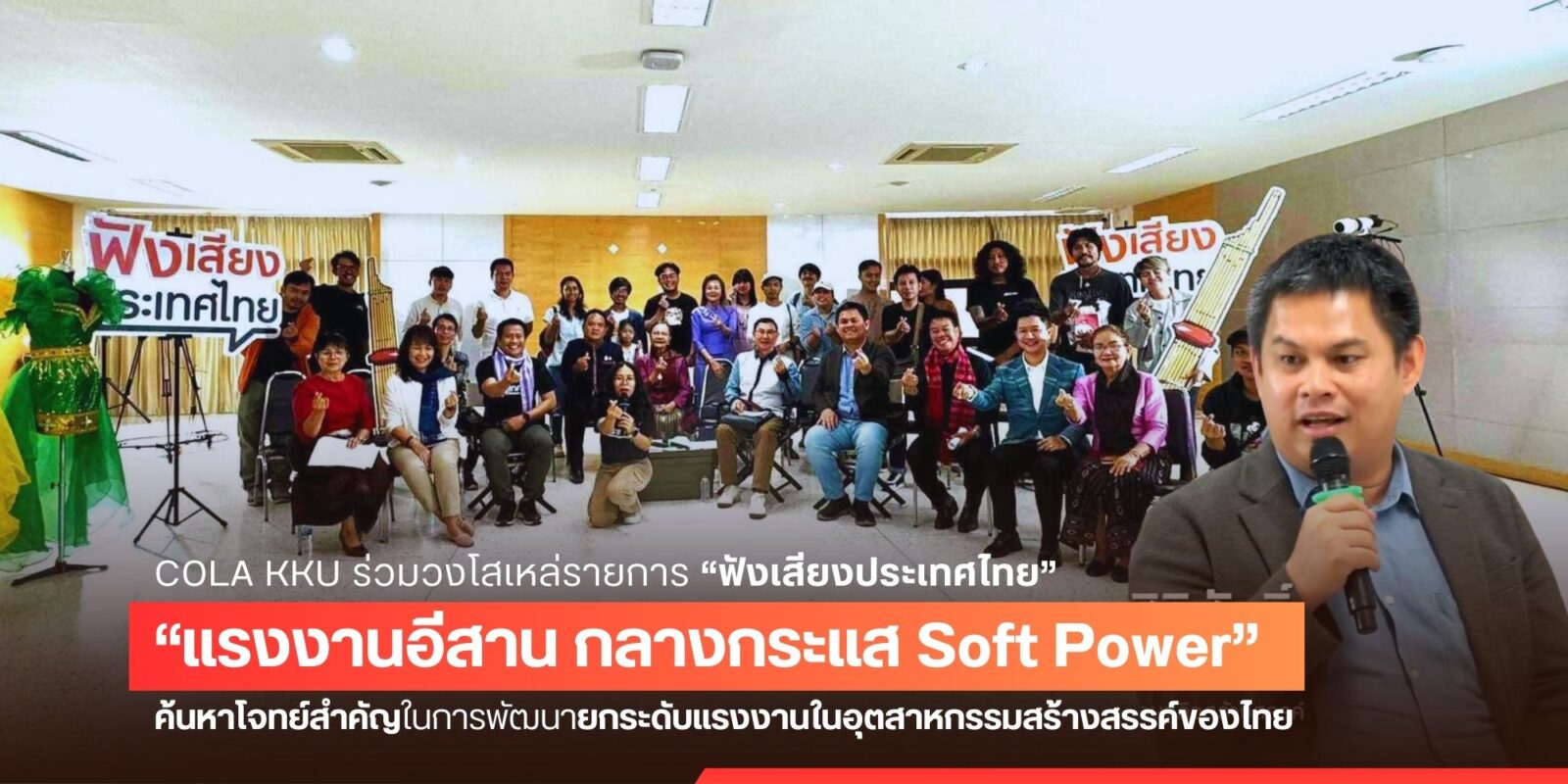What is the key problem in upgrading labor in Thai creative industry?
March 23, 2024 – The “Listen to Thailand” Program, oragnized a forum on “Looking at the Future: Isan Labor amid Soft Power” at the College of Local Administration, Khon Kaen University. Among participants were the network of artists, entrepreneurs, academics, new-generation, and related organizations. The forum was aimed at upgrading the quality of life of laborers in Isan creative industry.
The issues brought into the discussion included, for examples, decentralization of managing, supporting and promoting power and budget, skills that should be connected with academic institutions, the problem of welfare, security of income and occupation, creating an eco-system.
“There are two things that the government must assist, i.e., at the policy level and the quality of our work outcomes. South Korea is a good example: when they are promoting anything, they involve everything there – food, tourism, music, art, songs. In Thailand, the film: “Isan Children”, is a good example. But this requires a communication space.

Asst. Prof. Sirisak Laochankham, Ph.D., Dean of the College of Local Administration, Khon Kaen University and the leader of the Research Project on Mo Lum Research and Creative Economy said, “I agree that a university is a good place for skill development. No matter how far a government has changed, universities exist and are able to collect and develop the bodies of knowledge for the next generations. Besides, there are the producers and salesmen who sell the products. The most important thing is the local administrative organizations. Therefore, the government may have to return to look at the local administrative organizations to enable them to continue to manage on their own. Next, there may be the local plan for managing the involved budget, for the locality has the revenue and is able to make decision, leading to the Eco-system circle…”.

Khun Sumalee Suwannakorn, Chairman of the Isan Community Art and Cultural Media Network added, “Sub-district and provincial administrative organizations should be unlocked to support individual artists. Regarding art and cultural deployment, there are the issues of law and freelance workers. We are establishing the National Language and Wisdom Institution to take care of artists, which will offer welfare for them and the creative workers will be affiliated with the institution. Now, we have submitted the request to the Ministry of Culture. In fact, we should submit this to MHESI so that the promotion of artists will become sustainable.”

Khun Pakkapong Saenchat, from the KK-VOY network, also reflected from the viewpoint of students, “The number of graduates from University that will enter the creative labor market is around 40,000-50,000. But we cannot see where we are. Therefore, the underprivileged students who want to join will not have the courage to dream to become a creative worker as those with capital do. When we talk about creative worker, it is not the occupation of the elderly. We cannot rely on it regularly. The occupation is like a hobby or freelance, which is not stable. An eco-system is required for security. There should be the law and different acts. If the engineer can send human to the moon, the poet can make the world a pleasant place to live. For creative labor, we may not only look at the cost, but the value.”
“We all are laborers. While the government and many other sectors are busy finding ways to deploy creative economy at the Policy Level 11, the problem of quality of life upgrading for laborers will be the major part in connecting local community economy with labor potentiality for higher efficiency.”
The event can be watched at: https://web.facebook.com/youdeemeehang/videos/439025335362536/
News: Jitladda Saenta












